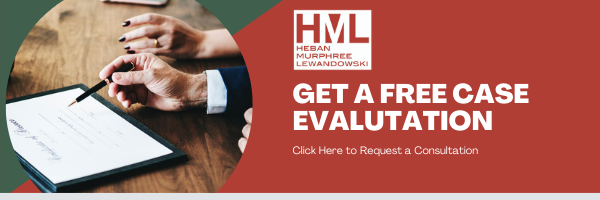- EXPERIENCED LAW FIRM IN TOLEDO, OH
- (419) 662-3100
How Do You Prove Breach of Fiduciary Duty?

How to Contest a Trust in Ohio
December 29, 2020
What Are The Duties of a Will Executor?
January 15, 2021Proving Breach of Fiduciary Duty
If someone has a legal obligation to serve or make decisions that are in line with the best interest of another, this is known as fiduciary duty. Business partners have a fiduciary duty to each other and the business, and executors or trustees in an estate have a fiduciary duty to the estate, its owner, or its beneficiaries.
Failure to uphold that duty is known as a breach of fiduciary duty, and this action comes with serious legal repercussions. If you are a victim of someone who is guilty of a breach of fiduciary duty, understanding your options and how you can prove this in a legal sense is vital.
What Does Fiduciary Duty Mean?
Fiduciary relationships are formed either by law or by contract, or they can be based on the circumstances surrounding the parties. Fiduciary duty is often seen between business partners. Even if they do not have a formal, legal contract, business partners have a legal obligation to perform actions that are in the best interest of the business. This is known as obligations of fidelity or fiduciary duty.
If your business partners are not acting in a trustworthy manner with the company’s best interests in mind, you may have a claim to a breach of fiduciary duty. For example, if a business partner starts to funnel money into a private account, or starts to take clients away from the business into a private consultancy without the other business owners’ knowledge or approval, they could be guilty of failing to uphold fiduciary duty.
Fiduciary duty also applies to estates. A trustee must act in the best interests of the estate or the estate’s owner. The executor has a fiduciary duty to act in the best interests of the estate’s beneficiaries in line with what the estate plan outlines. These parties cannot use their role to further their own interests or the interests of another third party. Moving funds into their own accounts or making decisions that bring the trustee financial benefit can be considered a breach of duty.
Regardless of the relationship, a breach of fiduciary duty occurs when the following is true:
- The person owed a fiduciary duty
- The person breached their duty
- That failure to perform the duty caused harm
If all of these are true, and you can prove them, then you may have the ability to file a claim of a breach of fiduciary duty against the at-fault party.
Where the Burden of Proof Lies
If you suspect that another party is guilty of a breach of fiduciary duty against you, it is your burden to prove that is the case. You must be able to prove that the individual is a partner, trustee, agent, or in some other role that creates a fiduciary duty. You must also be able to prove that the individual breached that duty and caused you harm as a result.
Proving this is not always easy, so plaintiffs often enlist the help of an attorney to assist in the case. Proving the breach starts with proving the fiduciary duty was present. Sometimes this is easy, such as in the case of someone who is taking on the role of business partner or trustee.
Once you’ve established fiduciary duty was present, you must be able to prove that the individual did not uphold that duty. Proving embezzlement, self-dealing, commingling of estate assets, or business actions that further one owner’s benefit and not the benefit of the entire company are all examples of this type of failure to uphold fiduciary duty.
In addition, the victim in these cases must prove that the failure to uphold the fiduciary duty also had a direct and negative impact on them. Only if the action or inaction caused harm can you prove a claim for breach of fiduciary duties.
Get Legal Help for Fiduciary Duty Cases
If you feel that you are a victim in a breach of fiduciary duty case, the best way to prove the case is with the help of an attorney. Your legal team will assist in gathering evidence to prove all three aspects of the breach. They will also help you prove your
Under the law, fiduciary duty is a high duty owed to another person. Working with an attorney will help you prove the breach so you can hold the other party accountable. Heban, Murphree & Lewandowski, LLC, is ready to help. Reach out to our legal team if you suspect a breach of fiduciary duty has occurred, and learn more about your options in the days ahead.








